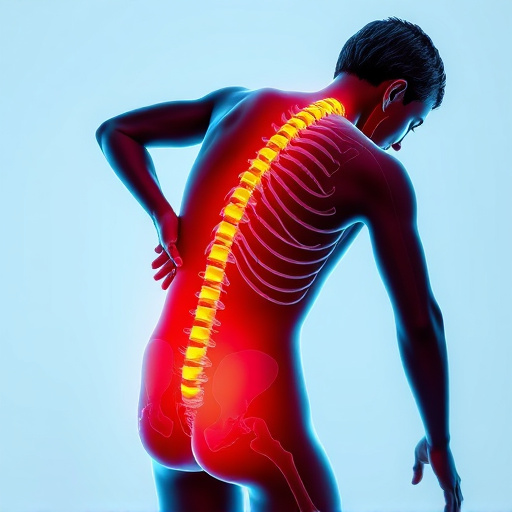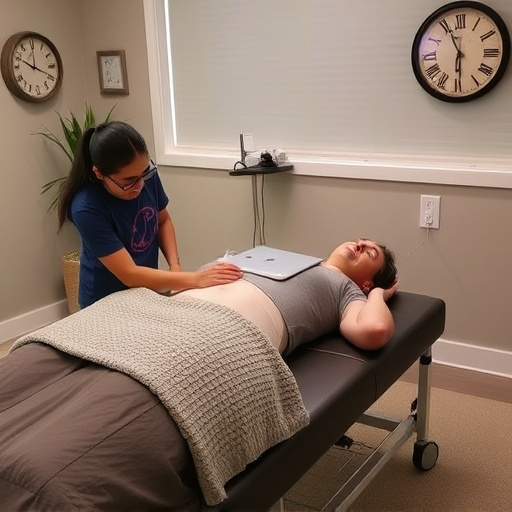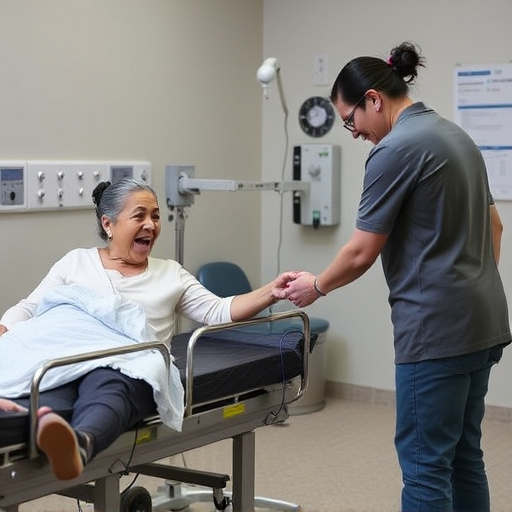Military injury treatment faces challenges due to diverse traumas affecting service members' physical and mental health. Transitioning to civilian life adds complexity. Holistic approaches integrating shockwave therapy, alternative treatments, and psychological support are crucial for successful recovery. Mental health services, including coping mechanisms and resilience building, are vital for addressing PTSD and depression. Comprehensive support systems beyond initial medical treatment, focusing on functional rehabilitation and continuous care, empower veterans for long-term well-being.
Military service brings unique risks, and understanding the challenges of military injury treatment is paramount. When an injury occurs, addressing not only physical healing but also mental health is crucial for comprehensive recovery. This article explores how mental health supports military injury treatment, delving into the role of therapy, peer support, and long-term well-being strategies. By integrating these aspects, service members can navigate their journey towards robust recovery and renewed lives.
- Understanding the Unique Challenges of Military Injury Treatment
- The Role of Mental Health in Accelerating Recovery
- Comprehensive Support Systems for Long-Term Well-being
Understanding the Unique Challenges of Military Injury Treatment

Military injury treatment presents a unique set of challenges due to the often severe and complex nature of traumas experienced by service members. These injuries can range from physical wounds to psychological scars, with many individuals facing both simultaneously. The transition from military to civilian life adds another layer of complexity, as veterans must adapt to new environments and support systems. Effective treatment requires a holistic approach that addresses not just the physical aspects but also the mental health and well-being of the injured service member.
Understanding these challenges is crucial in developing comprehensive strategies for recovery. Techniques like shockwave therapy for pain, along with spinal adjustments and other alternative treatments, have shown promise in enhancing injury rehabilitation. By combining advanced medical care with psychological support, healthcare providers can foster a more successful and fulfilling path to recovery for military personnel affected by injuries.
The Role of Mental Health in Accelerating Recovery

The role of mental health in accelerating recovery for military personnel with injuries is an often-overlooked yet vital component. Beyond addressing physical wounds, mental health support plays a crucial role in fostering a swift and effective recovery process. Service members face unique challenges, from post-traumatic stress disorder (PTSD) to depression, which can significantly impact their ability to heal and readjust. Integrating comprehensive mental health services into military injury treatment plans is essential for several reasons.
By prioritizing mental well-being, service members can develop coping mechanisms, enhance resilience, and better manage the emotional toll of their injuries. This support encourages a sense of control and optimism, which are key factors in accelerating recovery timelines. Moreover, addressing mental health concerns alongside physical rehabilitation ensures a holistic approach to treatment, considering both the mind and body. Such an integrated strategy is particularly beneficial for conditions like whiplash or sports injury recovery, where psychological comfort and functional rehabilitation go hand in hand.
Comprehensive Support Systems for Long-Term Well-being

Comprehensive support systems are integral to the long-term well-being of military personnel who have experienced injuries during their service. These systems extend beyond initial medical treatment for a military injury and encompass mental health services, functional rehabilitation programs, and continuous care. The transition from active duty to civilian life can be challenging, and many veterans face unique barriers in adjusting to everyday activities due to their physical and psychological wounds.
A holistic approach, integrating mental health considerations into the military injury treatment plan, is crucial. This includes specialized therapy sessions tailored for service members, peer support groups that foster a sense of community, and access to resources for financial planning and housing adjustments. Moreover, functional rehabilitation techniques, such as spinal adjustment and other complementary therapies, can play a vital role in restoring physical function and enhancing overall quality of life. These comprehensive support systems are designed to empower veterans, enabling them to navigate their recovery journey with resilience and dignity.
Military injury treatment requires a holistic approach, and mental health support is an indispensable component. By addressing the unique challenges faced by service members, comprehensive care can significantly accelerate recovery and enhance long-term well-being. These supportive systems ensure that veterans not only heal from their physical injuries but also thrive emotionally and mentally, navigating the transition back to civilian life with resilience and purpose.













